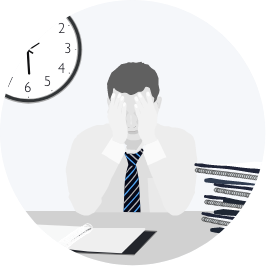Psychiatric Injury Claims at Work: Stress, PTSD & More
Psychiatric injuries can have a devastating impact on your mental health, your working life, and your future. Sadly, many employees suffer in silence, unaware that they may be entitled to compensation if they’ve experienced serious psychological harm in the workplace.
In this guide, we explain what qualifies as a psychiatric injury at work and the legal protections available to you. We outline the different types of psychological injury claims (such as work-related stress, PTSD and anxiety), how much compensation you could receive in the UK, and how Monaco Solicitors can support you in making a successful claim.
See also our related Guide on Mental health and discrimination at work and the FAQs at the end of this guide.
What is a psychiatric injury at work?
Psychiatric injury is also sometimes referred to as psychological injury and more generally as psychiatric harm or psychological harm. The terms are used interchangeably in this guide, but mental health issues must be much more serious than just ‘harmful’ in order to be counted as an ‘injury’.
Psychiatric injury is also the term that the law recognises in legal compensation claims and it must be diagnosable as a recognised psychiatric injury by a qualified medical expert such as a consultant psychiatrist or clinical psychologist.
Psychiatric injuries in the workplace are serious and medically recognised conditions that include such illnesses as Post-Traumatic Stress Disorder (PTSD), severe depression and anxiety disorders (see below for more).
These kinds of psychiatric injuries are lasting and clinically diagnosed mental illnesses, unlike ‘psychological harm’ for example, which can include temporary feelings of stress or emotional upset and don’t qualify in law as a psychiatric injury.
If your workplace has caused or contributed to your psychiatric injury, you could be entitled to financial compensation.
Examples of psychiatric injuries at work
Some typical examples of psychiatric injuries that could form the basis of a psychiatric injury claim, and that can result from your employer’s mental health negligence at work include:
Post-Traumatic Stress Disorder (PTSD):
Often caused by experiencing or witnessing traumatic incidents like workplace violence or serious accidents.
Clinical depression:
Such as that resulting from sustained harassment, bullying, discrimination or toxic working conditions.
Severe anxiety disorders:
Including panic disorder or phobias, triggered by toxic or abusive work environments.
Adjustment disorders:
Brought on by sudden negative changes in work circumstances, such as unfair dismissal, unfair redundancy or unjust demotion.
Obsessive-compulsive behaviours and phobias:
Sometimes caused by prolonged, intense work stress, neglect or unsafe working conditions.
Occupational stress:
The feeling of being under too much pressure or overwhelmed at work, which can make it hard to cope with daily tasks or your job.
Do you have work-related PTSD, severe depression, anxiety?
You may be able to claim psychiatric injury compensation
Ask our experts!
How UK law protects you from psychiatric harm in the workplace
In the UK, workers are protected against psychiatric injury at work by two different kinds of law: ‘tort law’ and statutes such as Acts of Parliament.
Put very simply, tort law is a general set of legal rules that lets you claim compensation if your employer causes you psychiatric injury, even if they didn’t break any specific law.
On the other hand, statutes like the Health and Safety at Work Act 1974 are specific laws made by the government. The laws set out clear duties and rules that your employer must follow to keep you safe at work. If your employer fails to follow them, then you may sue them if you are a victim of their failure.
Tort law and psychiatric injury in the workplace
Tort law deals with wrongful acts, other than breaches of contract, that cause harm to a person, property, or reputation. It protects you in a workplace setting and allows you to claim compensation if your employer’s negligence causes you psychiatric injury.
Employers have a legal duty to:
- Provide you with a safe and healthy working environment.
- Take reasonable steps to prevent you from being bullied, harassed, or overwhelmingly stressed.
- Act quickly if they become aware that your mental health is at risk.
If your employer fails in these duties and you suffer a recognised serious psychiatric illness such as depression, anxiety, or PTSD, you may have the right to bring a psychiatric injury claim under tort law and seek compensation for it.
A big part of making a claim for psychiatric harm is whether your employer could have foreseen your injury occurring. Employers are normally allowed to assume their staff can cope with the usual stresses of the job.
But if they knew, or should have known, that you had a particular problem or vulnerability that made you more at risk of psychiatric harm than other employees, but ignored it, then you’d need to show that in your claim.
Specific laws protecting you from workplace psychiatric harm
The Health and Safety at Work Act 1974:
This is one of the main UK laws which says employers must take reasonable steps to protect both your physical and mental health.
The Protection from Harassment Act 1997:
While this Act does not specifically deal with psychiatric injury, it provides you with an additional avenue for mental health compensation claims where your employer’s conduct amounts to harassment.
The Act does not require you to prove a recognised psychiatric illness, and so makes it a viable option for you if you have suffered significant stress at work but have not developed a recognised psychiatric injury.
Are you eligible to claim for psychiatric injury?
If you’ve experienced serious mental health problems because of how you were treated at work, you may be able to make a psychiatric injury compensation claim. This section explains what needs to be in place for your claim to succeed, from getting the right diagnosis to proving your employer was at fault.
You must have a recognised psychiatric condition
To make a psychiatric injury claim, your mental health issue must be diagnosed by a medical professional as a recognised condition such as PTSD, depression, anxiety disorder, or adjustment disorder. Feeling low or stressed from everyday work pressure usually won’t be enough.
The mental health problem must be linked to a clear cause at work
Your condition must have been caused or seriously worsened by something specific that happened at work. This could be a single traumatic event like bullying, harassment, discrimination, or excessive workload, or an ongoing pattern of harmful behaviour.
You’ll need to show that what happened was clearly linked to your mental health injury.
Your employer must have failed in their duty to protect you
Employers have a legal responsibility to look after your mental wellbeing at work. You’ll need to show that your employer knew (or should have known) about the situation and didn’t take reasonable steps to prevent or reduce the harm. This is called negligence.
For example, ignoring repeated complaints about bullying or piling on unsustainable workloads could count as a failure in this duty of care.
You’ll need medical and workplace evidence
To support your psychiatric injury claim, you’ll need to provide:
- A medical report diagnosing your psychiatric condition.
- Evidence showing a link between your illness and your work (such as emails, grievance documents, witness statements, or HR records).
- Anything that proves your employer was aware of the problem and failed to act.
Primary vs Secondary victims of psychiatric injury
Most work-related psychiatric injury claims are made by primary victims, who are employees directly harmed by what happened at work. Secondary victims (such as someone who witnessed a traumatic event affecting a close colleague) face stricter rules and may need to prove a close relationship and other legal tests.

How much compensation could you get?
When considering how much compensation for psychiatric damage UK courts typically award, the amounts depend on the severity of your condition and its impact on your life, pain and suffering, loss of amenities (your quality of life and lifestyle) and financial losses such as lost earnings.
For instance, compensation for temporary depression can be between £1,000 and £5,000, but severe, lasting psychiatric harm can result in awards exceeding £100,000.
How Monaco Solicitors can help you with your psychiatric injury claim
Monaco Solicitors is a reputable and well-established UK employment law firm specialising in helping employees who have been badly treated at work.
We have expertise in successfully handling psychiatric injury claims if the injury happened to you at work, or is part of a wider employment law claim. (We don’t handle personal injury claims which are not work-related.)
Here are some of the ways we can help you with your psychiatric injury claim:
- Initially evaluating your mental health claim.
- Providing you with expert legal support to prove your employer’s liability under psychiatric injury tort law and other laws – see above.
- Advising you on collecting strong evidence, including expert psychiatric reports and witness statements.
- Guiding you through complex legal requirements around psychiatric harm tort law and mental health claims.
- Negotiating with your employer or their legal representatives to secure the best possible mental health compensation payment.
- Advising you if you have to take your case to an employment tribunal.
- Offering compassionate support throughout your claim process.
Unlike many employment law firms, we act exclusively for employees, so we are always on your side. Our success in winning work-related psychiatric injury compensation and mental health negligence cases means you will be in safe hands.
FAQs about psychiatric injury at work
Here’s a selection of questions that we frequently get asked about psychiatric injury and related claims.
What is psychiatric injury or psychological injury?
Psychiatric injury is a serious mental health condition, like PTSD or severe depression, caused by traumatic experiences or long-term mistreatment.
Can I make a claim for psychiatric injury caused by bullying?
Yes. If bullying at work caused a recognised psychiatric illness, you may be entitled to mental health compensation.
Can I claim compensation for work-related stress in the UK?
Yes. If work-related stress has led to a medically recognised psychiatric condition, and your employer failed in their duty of care, you may be able to claim for stress at work.
Can I claim if I have a pre-existing mental health condition?
Yes. You can still claim if your pre-existing condition was made worse by your work environment, provided there is medical evidence linking the deterioration to your
How do I prove a workplace psychiatric injury claim?
You will need expert medical evidence diagnosing a serious psychiatric illness and linking the harm to your employer’s negligence.
What’s the time limit for making a psychiatric injury claim?
Normally you must begin a claim within three years of when you first knew, or should reasonably have known, that your psychiatric injury was caused by work.
How long do psychological injury claims take to resolve?
Timeframes vary. Some cases settle in a few months, while more complex claims can take much longer, especially if they go to tribunal or court.
What is the average compensation for mental health negligence cases?
Mental health compensation payouts in the UK vary, but minor cases may be awarded from about £1,000 to £5,000, while severe, long-lasting injuries could attract six-figure settlements.
Do I need to go to court for a psychiatric injury claim?
Many claims are settled without the need for a court hearing. Our employment solicitors aim to resolve cases quickly, favourably and out of court whenever possible.
What next?
If you are suffering from psychiatric harm because of the treatment you have received at work, it’s important to act quickly. Psychiatric injuries rarely resolve themselves without intervention – and the law is on your side if your employer has failed in their duty of care.
Monaco Solicitors are specialist employment law solicitors, and have a track record of successfully handling employment law disputes, including compensation claims for psychiatric injury at work.
We offer expert, compassionate support to get you the best possible outcomes. So, don’t suffer in silence. Take the first step towards justice today and contact us:
- Our online contact form
- Email: communications@monacosolicitors.co.uk
- Phone: 020 7717 5259

